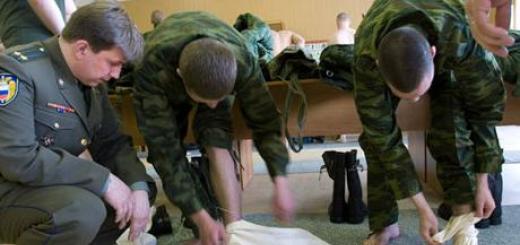Modern teachers note the importance of early learning English. And there are a number of reasons for this. Psychologists have long known that in childhood, memory and thinking have unique features. Unlike adults and adolescents who strive to understand logic in any situation, children think figuratively. They have no need for analysis, which means that any grammatical phenomenon is taken for granted by them. They do not have major barriers (unlike older children) when learning spoken English - they are not afraid to make mistakes.
In addition, babies have an amazing ability to quickly memorize information and retain it for a long time, and this lays a solid foundation for further language acquisition at school. Perhaps every school teacher will agree that the children with whom they were engaged in the early study of the English language are immediately visible. Moreover, they not only remember the material covered and easily give out the words and constructions requested by the teacher, but also much easier and faster to adapt to the language environment and learn new knowledge. They do not need to explain elementary basics.
Nevertheless, there is only one way to arouse in a child an interest in learning a foreign language and a desire to seriously engage in it - by forming a positive attitude towards the lessons. And this can be achieved by choosing a competent approach to teaching children English, corresponding to age characteristics.
At what age can children be taught English?
The popularity of language courses is growing today, but few are asking the question “At what age can a child start learning English?”.
The answer is not obvious - right from birth. So the baby will absorb foreign speech from the first days. Use affectionate English words when naming your child and sing lullabies. Actively introduce game methods into training.
If you start teaching your child a language at 3-5 years old, then we will please you: games for learning English and the use of characters (dolls or toys) as teachers will make classes fun. At this age, children will already be able to learn by ear the names of colors, numbers, family members, words from basic topics. When working with three-, four- and five-year-olds, entertaining stories and exercises where physical activity is required are indispensable.
At 6 - 8 years old lessons can be approached even more seriously: read short fairy tales, focus on children's songs. For younger students, it is already possible to enter written assignments - let the child enter new words in a notebook and practice writing them in copybooks.
At 8 - 10 years old you can move on to mastering the main base - grammar and vocabulary. For schoolchildren, games in English, songs, hymns, rhymes and rhymes will be a “delicious” addition to the main lesson. The same can be said about cartoons - for your little student, first turn on the animated series in Russian, and then the same releases in English. Use colorful textbooks and workbooks - for a child, the main factor in learning any discipline is involvement.
Are you convinced that English for kids is interesting and useful? Well, start teaching your child too!
English for children "from scratch" - basic techniques
These methods are suitable both for teaching schoolchildren (lower grades) and for helping children learn English at preschool age:
Basic principles of teaching children
In order to successfully learn English for children from scratch, experienced teachers, as a rule, try to adhere to certain principles.
- Constant repetition of words and development of grammatical structures. Of course, at each lesson, the teacher introduces new lexical units, due to which the vocabulary increases. However, periodic repetition of the material covered is no less important. The rule should apply not only to preschoolers, but also to students of primary, middle and senior school age.
- The use of various ways of presenting and memorizing material. Some children have a better developed visual memory, others remember information more easily through listening to it, and for others it is especially important to perform certain movements at the time of repeating a word. Therefore, once again, an integrated approach is the most successful option in this regard.
- The use of memorized words in sentences. Even three-year-old children with the skills of speaking their native language can easily compose simple sentences in English, which experienced teachers try to teach them from the first lessons.
Teaching children English in practice
Surely, many mothers are interested in whether it is possible to organize English training for children “from scratch” on their own, without the help of specialists. Certainly yes. If you speak the language at least at an elementary level, then you may well become a personal tutor for your own child. To do this, of course, you will have to study some literature, delve into the teaching methodology and also decide on a textbook. UMK "Kid`s box", "First friends", "Playway to English", "Wonderland", "Pingu`s English" are excellent for such purposes. On the Internet today you can find a lot of useful materials, including interesting texts, audio and video on various topics.
Alphabet
Hey, bi, si ... it will not be difficult for a child to repeat simple letters after his mother every day. So he will first learn the first 5-6 letters, and then the entire alphabet, which will later come in handy for him to master the basics of the English language.
English alphabet with pronunciation
Numbers
Having studied the first ten digits, your child can easily count the number of toys in his room and spoons on the kitchen table. Educational games in English will help him with this.
Numbers in English from 0 to 20
Colors
This topic is interesting for kids. It is not so voluminous, and the studied words have the opportunity to constantly train. English games for finding colors or identifying parts of a color palette in a drawing are standard options for memorizing new lexemes.
Colors with translation and transcription
Animals
One of the objects of love for children is animals. Now, when visiting the zoo and viewing the encyclopedia of species, you can safely include their foreign counterparts in the story about lions, dogs and cats. Little zoologists will like this innovation - they will definitely imbue it and first of all learn the name of their favorite animal.
Domestic and wild animals in English
Food
Among the exercises in English lessons for children, you can find the names of various fruits, vegetables, flour, etc. Memorization is fast due to the fact that English names are trained during breakfast, lunch and dinner, in this way. Foreign words are brought by the guys to automatism unconsciously.
Vegetables
In Russian cuisine, vegetables are used everywhere. From the first days of life, the child eats foods made from them. For the topic “Vegetables”, it is not necessary to select special tasks or exercises, it is enough for children in English in a playful way to use a couple of words at lunch, during dinner or the next lunch you will certainly hear what you said the previous time.
Vegetables in English
Seasons
There are only four seasons, however, these 4 words can be played with different clothes, pictures, pay attention to the current weather. English for kids online gives you the opportunity to expand on this topic to include months, weather and holidays.
Seasons and weather in English
Online word guessing game for kids
Children love to explore the world through a variety of fun games. A riddle is one of the game methods for learning new words. It is suitable both for mastering new information and for checking already known topics.
You can see the riddles at this link, and below is a classic online word guessing game for children that our parents played on paper.
Clue -
Your Browser does NOT support HTML5 Canvas tag, sorry
Help Play again
Fairy tales in English and Russian
And also, you can read fairy tales to children in English. After your child has mastered the initial level, you can offer him fairy tales in English, which he knows well in Russian. A familiar story, told in English, will undoubtedly interest the child.
Having put the English version of your favorite fairy tale, you can take the Russian book of the same name with illustrations and try to follow through the pictures what the announcer is talking about. While listening, the child does not learn to perceive someone else's speech by ear, but also learns the correct pronunciation. He unconsciously remembers how foreign words should sound correctly. Below is an excerpt from the fairy tale “The Three Little Pigs” in English with a translation into Russian, as well as a very short fairy tale about a princess for complete beginners. By the way, you can find the whole fairy tale about the three little pigs as part of the training exercise on our website.
The Three Little Pigs
There was an old sow with three little pigs, and as she had not enough room to keep them, she sent them out to seek their fortune. The first that went off met a man with a bundle of straw, and said to him: "Please give me that straw so I can build my house." Which the man did, and the little pig built a house with it. Then along came a wolf, and knocked at the door, and said: "Little pig, little pig, let me come in!" To which the little pig answered: "No, no, not by the hair of my chinny chin chin." The wolf then answered: "Then I"ll huff and I"ll puff and I"ll blow your house in." So he huffed, and he puffed, and he blew his house in. And ate up the little pig.
Three pigs
Once upon a time there was an old pig with three piglets, and since she did not have enough place to keep them, she sent them to seek their fortune. The first one to leave met a man with a bundle of straw and said to him, "Please give me this straw so that I can build my house." What the man did, and the pig built a house with it. Then the wolf came and knocked on the door and said, "Piglet, piglet, let me in!" To which the pig replied, "No, no, I swear by the beard on my double chin." (I won't let you in). The wolf then answered: "Then I will blow and puff, and I will blow your house away." So he blew and blew and blew away his house, And ate the pig.
The princess
The little princess lived in the castle. She dreamed of a prince. She imagined that he would be tall, beautiful and educated. Every day she dreamed of her wedding.
One day the princess was walking in the forest, and a wolf attacked her. The young shepherd beat him - the wolf ran away.
The princess fell in love with her savior. He was of small stature, not beautiful appearance, but the girl liked his soul. And she realized that this shepherd is the most beautiful of men, and that growth, eyes is not the main thing.
Princess
The little princess lived in her castle. She dreamed of a prince. She imagined that he would be tall, handsome and educated. Every day she dreamed about her wedding.
Once the princess was walking in the forest, and a wolf attacked her. The young shepherd beat him with a stick - the wolf ran away.
The princess fell in love with her savior. He was small in stature, did not have a beautiful appearance, but the girl liked his soul. And she realized that this shepherd is the most beautiful of men, and that height, eyes are not the main thing.
There are many websites in English for children on the Internet. Among them come across both good and not so good. In this review, I will talk about several interesting resources that will be useful to parents who decide to study English with children, as well as teachers.
Warning: I am neither an English teacher nor a parent. However, I am well acquainted with the sites discussed in the review, I used them myself and recommend them to others, including acquaintances who study English with their children.
"Teacher Method" - detailed English lessons for children 5 - 10 years old
Another popular site in English Puzzle English(also with very wide functionality) offers large and very detailed courses for beginners "Teacher Method". Courses are made in the form of a game. In the Teacher Method, theory is given not only in the form of text, as in Lingvaleo, but also in short videos with teachers.
Classes are held according to the scheme "explanation - exercises - test":
- The teacher explains a new topic.
- You are doing some exercises.
- After completing several lessons, you take an exam (test).
Most of the site's features are free, but some features are paid, for example, some modes of memorizing words, almost all courses.
Separately, it is worth highlighting the course, designed, in fact, for the smallest.

There are three blocks of tasks in the course:
- We learn the alphabet.
- My family and pets.
- How do you feel?
Classes are held in the form of interactive tasks, where you need to choose the correct answer, match a word and a picture, add words from letters, etc. Like all courses, “English for the little ones” can be taken in a free demo mode to understand he or not.
Duolingo - English for kids in a playful way

There are such cute cards on the British Council
On this site you will find materials for preschool and primary school children: songs, short stories, videos, games, exercises, etc. All of them are well designed. For example, if you open a video, it will not just be a page with a video (which everyone watched), but a whole set of tasks: first, an exercise where you need to match words and a picture, then a video, then a test, plus a pdf is attached to the video -files for printing - text from the video, assignments and answers.
- Listen and Watch- videos and exercises for them. Songs are highlighted in a separate sub-heading.
- Read and Write– short texts for reading and simple writing exercises (for example, to sign a picture).
- Speak and Spell– video and text materials, pronunciation exercises (reading rules) and spelling.
- Grammar and Vocabulary- video lessons (skits), grammar exercises and games. The rules are explained very simply.
- Fun and games- mini-games for learning English.
- Print and Make- printout materials: vocabulary cards, coloring books, mini-worksheets (worksheets) and others.
- Parents- a section for parents with articles, useful tips on how to help children learn English. Includes video tutorials where teachers explain how to play educational games with young children.
Also, the British Council has released a number of mobile applications, on this page their list: http://learnenglishkids.britishcouncil.org/en/apps.
InternetUrok.ru - free online school curriculum lessons
Where can I find cartoons in English?
There are many cartoons in English created specifically for educational purposes. There are skits, dialogues, new words are explained, etc. Here's where to find them:
- On YouTube- Youtube is full of such cartoons, it will not be difficult to find them. For example, here a selection of educational cartoons about the dragon Gogo and his friends. In this series for kids, simple words and phrases are given in small stories about the adventures of a funny dragon.
- In the English Conversation for Kids app is not a tutorial, but simply a collection of YouTube videos conveniently sorted into directories. The same cartoons about the dragon Gogo and many others. The application is available on Android.
- On Lingualeo. In the “Materials” section there is a topic “For Children”, which includes such cartoons. The disadvantage is that they are collected randomly, plus - the presence of convenient subtitles with a translation that pops up when pressed.
In addition to educational cartoons, there are just cartoons that you can watch without translation. But this, of course, is a more difficult task. They can be found on Puzzle Movies (Puzzle English section with series) - in addition to TV shows and series, this service also has cartoons.

Getting started right is half the battle. Including learning English. But at what age should you start learning English and how to organize classes so that the child loves this language? Anastasia Ekushevskaya, Head of Kids Primary at Skyeng School, talks about the peculiarities of language learning at different ages.
In contact with
Classmates
3-5 years
At this age, the child will learn any foreign language in the same way as his native language - naturally and almost unconsciously. But for this you need to create an artificial language environment. Language should surround the child in everyday life: sing songs and lullabies in English, learn counting rhymes and simple rhymes. Classes in groups are also held in a playful way, but with an emphasis on learning activities. The child gets used to the game "in the lessons." For example, in a lesson on the topic Family, children first get acquainted with new vocabulary using cards with colorful pictures, then they play some kind of outdoor game using new words, watch a short, simple cartoon and reinforce what they have learned by answering questions from the teacher, for example, how they will call their mother or brother in English when they get home.
Periodicity: 2-3 times a week.
20-30 minutes, but no more than 2 hours per week.
Peculiarities: At this age, a change in activity and a dosed supply of material are important. 
5-7 years
By this age, the child already has a good vocabulary of his native language, he can compose complex sentences and describe what is happening around him. However, it is still difficult for toddlers to consciously focus on one task, so the lesson should include a variety of activities. One of the best methods of teaching English during this period is project activity. For example, a series of classes on topics related to the culture and history of the country whose language is being studied. For example, studying the geography of the United Kingdom, children draw a map together, get acquainted with the symbols of different parts of the UK, and at the same time with characters that are iconic for the British, from Queen Elizabeth to Paddington Bear. The lesson is perceived not as a learning process, but rather as a small journey, and therefore interest and attention are constantly focused on the development of events.
Periodicity: 2-3 times a week.
Optimal lesson duration: 45 minutes.
Peculiarities: When calculating the time of the lesson, keep in mind that the fees and the road to the language school also create a burden on the child - he receives new impressions and is distracted. Therefore, it is better to choose courses very close to home or even study online, in a comfortable and familiar environment. 
7-9 years old
Younger students begin to study the grammar of their native language, and this allows them to expand their knowledge of English. It makes no sense to learn the rules earlier: abstract thinking is not yet developed in kids, and it is impossible to learn grammar without it. But 7-9 years old is the most suitable age to not only get acquainted with the rules, but also bring their use to automatism. This is an important stage, it is he who will allow in the future to begin an in-depth study of the features of the language and the development of basic skills: reading, listening and writing. To consolidate the topic and develop conversational skills, children act out dialogues in which they use knowledge of the rules in practice. It is especially important at this age, otherwise the rules will remain theoretical knowledge, but the child will never learn to use them in a conversation.
Periodicity: 3-4 times a week
Optimal lesson length: 45-60 minutes.
Peculiarities: at this age, the process of assimilation of new information is at its peak, therefore, by maintaining the interest of the child, you can get an excellent result.
Like any habit, the ability to speak English needs to be instilled gradually, but regularly and systematically. Classes in this case take place naturally for the child, and the study load does not cause resistance. It is very important that English classes arouse interest, inspiration and exceptionally positive emotions in the child. Excessive severity, high demands and punishment for mistakes will only lead to the fact that the baby will begin to be afraid of the language. This is how a barrier is formed that is very difficult to overcome even for adult motivated students. Learning should be a game, and we have taken this into account
Knowledge of foreign languages broadens one's horizons and makes one feel at home anywhere in the world. And what parent does not want their child to have a developed intellect and open doors everywhere? Therefore, more and more children are taught foreign languages from a very early age. It is believed that children are much easier to get used to a foreign culture than an adult. But English for children requires a special teaching methodology, which we will talk about today. We will tell you how to instill in your child an interest in learning and advise on ways in which you can conduct English lessons for children easily and effectively. Let's get started!
As scientists have noted, the peculiarities of children's perception of the world help kids learn foreign languages more easily. Children are open to everything new, and genuine curiosity drives them to learn more and more. The parent can only direct the energy of the child in the right direction. But the question of how old to teach a child to English is very individual.
If we talk about the recommendations of experts, then their opinions also differ. Some scientists recommend conducting the first English lessons with a baby from the age of 3. Other teachers advocate a more conscious age (5-6 years), and still others argue that before 7 you should not even think about foreign languages.
Each theory has its own arguments for and against, but we will not consider them in detail. In any case, only parents decide when to start learning English for their children. Here are some tips to make your choice easier.
- You should not start learning a second language until your native language is confidently mastered. This also applies to an insufficient vocabulary, and incorrect pronunciation, and violations of the logical connections "subject-designation".
- If the child is not yet actively seeking to explore the world, it is better to wait a while until the natural need for knowledge appears.
- If, on the contrary, the baby shows excessive activity, then you should definitely pay his attention to entertaining English lessons.
- Think about how psychologically you yourself begin teaching English for a kid. At the same time, parents should understand that their children are influenced by their own example. At a minimum, it is desirable that you know English at a beginner level or expand your knowledge with your children.
If you cannot make a decision, even after carefully weighing all the pros and cons, conduct a trial lesson with your child. The baby will not like it - well, then it's not time yet. And if the child remains delighted, then all parental doubts will immediately disappear. Don't be afraid to try and don't rely too much on expert opinion. All people are individual, and it is never too late to start learning.
Thus, with the age of young students, we theoretically figured it out. Now let's move on to more practical issues, and analyze in detail the methods and recommendations for teaching English to children of different ages.
English for kids 3-4 years old
This age is the most optimal if you decide to start learning English with a child “from the cradle”. During this period, children turn into active "why" and they are interested in almost everything around. At the same time, babies think in bright and simple images that help them memorize new information easily and quickly. Therefore, foreign language lessons for children 2.5 - 4 years old will certainly bear fruit. But it is very important to choose the right format for English lessons for kids.
Where to begin
Little children are carefree and spontaneous, so it is not necessary to meticulously explain the rules of the language to them. English lessons for children should take place exclusively in a playful way: your child should not feel any moralizing, coercion and requirements. With a violent approach, you will not only not teach a child anything, but on the contrary, you will form a hated attitude towards any foreign languages. Therefore, be very careful: let the lessons be spontaneous and 10-15 minutes in the form of a game rather than 30-minute lessons in the full sense of the word.
If we talk about where to start the process of learning English with children, then there are many options. Among them:
- Alphabet;
- Greeting phrases;
- Designations of family members;
- Numbers, colors, etc.
But again, do not count on strict and consistent classes, as in adults. Try to suggest topics that are interesting to the child, for example, learning words about animals or colors in English together. Say the word, and let the baby repeat after you, or, for example, show a card with such a picture.
In general, the presentation of the material should be very dynamic and varied. Do not make the baby bored, and even more so tired of long explanations. Try to use fun and playful ways to teach English to young children. We have listed some of them below.
Songs
Educational songs are one of the best ways to teach English to young children. Funny music quickly attracts children's attention and activates auditory memory. So the guys have fun and at the same time easily and quickly memorize English vocabulary.
It is also very effective to include videos with songs for kids. A vivid video sequence illustrating the plot of the song will attract even more attention and help to include visual memory in the work. And after a couple of training sessions, go on to independently perform songs with your child. You can also add funny dances or play with the image of the objects / animals that are discussed in the song.
In general, such entertaining lessons will form the following skills in children:
- Interest in learning foreign languages;
- Knowledge of English words;
- Ability to recognize English speech by ear;
- The ability to speak independently (repeating memorized phrases).
And, of course, the children will improve the work of memory and the general development of intelligence.
Fairy tales
Another effective method with which you can effectively teach English to children up to 7 years old. What child does not like to hear about the adventures of fairy-tale heroes, especially when mom or dad talk about them.
Other English topics: Irregular English verbs - table with translation Grade 6
Read fairy tales to your baby, as you always do, only now slowly add elements of the English language to them. First, one or two words that are familiar to the child, and later try to work with adapted versions of English fairy tales. Be sure to read the texts playfully: with a change in voice, showing scenes, gestures, etc. The brighter the images, the more interesting it is for children.
Games
And the favorite pastime of the children is outdoor games, fun and logical guessing games. All these elements must also be actively used when teaching English to children.
The simplest thing is to guess English words for your baby using learning cards. You show a card and the child calls it (or vice versa). Another fun game: the parent depicts a fairy-tale hero, animal, bird or object, and the kid must name the hidden character in English. You can also just walk on the street, and name the colors of the surrounding objects.
There are many options, the only thing I would like to note is that we would not recommend accustoming a baby to electronic games at this age. Do not leave the upbringing of children to computers, tablets and other gadgets. Only by your own positive example and participation will you be able to invest the best knowledge and skills in your child.
English for children 5-7 years old
Preschoolers have not yet lost their children's interest in the world around them, but they are already more serious than three- and four-year-olds. Therefore, many parents believe that this is the best age to start learning English. Preschool lessons are also held in a playful way and do not take much time, but the methods of learning English for preschool children, of course, are slightly different.
Vocabulary
English lessons for children from 5 years old are always, for the most part, acquaintance with new words. The grammar of the English language for this age is still heavy, and the letters are too simple. So this period is ideal for the formation of an active vocabulary in a child.
It is better for preschoolers to study vocabulary on certain topics. It is good if these are vocabulary cards with bright pictures that reveal the meaning of the word. Firstly, a beautiful design in itself will attract children's attention, and secondly, with a picture, the word is corny easier to remember. In addition, exciting educational games can be played with cards, but more on that later.
Also, vocabulary is mastered in the process of studying nursery rhymes, songs, fairy tales.
Dialogues
To prevent your child from forgetting the learned vocabulary, add more English phrases to your conversations. For example, instead of saying good morning, say " Goodmorningmyson (mydaughter)”, provoking the child to also answer in English. Of course, you should not go too far and constantly communicate in a foreign language. It is enough for a day to use a few popular phrases.
Also, English lessons for children 6 years and older can be carried out by playing small skits. For example, you can use hand puppets and repeat the lines of characters from your favorite fairy tales. Or just play with puppets, making up a simple conversation:
- -hello!
- -hi!
- -Mynameis… etc.
It is desirable that the parent speaks the line first, and the child repeats after him, substituting the characteristics of his character.
cartoons
First of all, foreign language classes should be interesting for the children themselves. And teaching English cartoons will perfectly help parents in developing interest in learning in preschool children.
Turn on small colorful videos and watch them with your baby. Fortunately, today on the Internet you can easily find an instructional video in English for children of any age. At the same time, it is not at all necessary to explain in detail to the child that we are not just watching a cartoon, but are learning a new language. Give the kid time, and he himself will be involved in the process and will be able to understand the simplest remarks of the characters. Then the task of the parent is to make a small discussion after watching and reinforcing the vocabulary heard.
With the right approach, such entertaining English lessons for children of five or six years old are simply irreplaceable. After all, such activities arouse interest in the baby and help develop all the necessary speech skills:
- A set of new vocabulary;
- English listening comprehension;
- Speaking (repeat phrases + discussion with parents);
- Correct pronunciation.
In addition, this technique is very useful for general development, because. cartoons reveal everyday moments and explain important life principles to children in an accessible form.
Games
As with toddlers, English for 5 or 6 year olds is always taught in a playful way. Therefore, organize various mini-games, contests or competitions more often.
So, with the help of cards you can play " guess the odd one»: 3 cards are laid out on one topic, and a fourth is added from another deck. The task of the child is to remove the unnecessary card. There is an interesting variation of this memory game: 3-4 cards are laid out in a row, then the child closes his eyes, and the parents remove 1 card. The kid must accurately name which card was removed.
You can also play with preschoolers in " who knows more words», « guess faster», « Freeze sea figure», « crocodile" etc. The main thing is not to forget that victory and parental praise are very important for kids. Therefore, often affectionately address the child, cheer him up if he loses, and admire his successes when the baby wins. A warm attitude and interesting games, and even more victories in them, motivate the child to study English more and more often.
This is how they teach English for children 7 years old. In fact, at preschool age, children only get acquainted with the language, get used to its sound and new words. But the role of such an easy game is very important: it liberates the kids, and subsequently they will not have a language barrier, i.e. fear of speaking in a foreign language. On the contrary, a second language will be perceived as a natural and necessary thing.
English for younger students
And finally, the final period of childhood refers to elementary school. Here the task of the parent is to do more with the child, explaining the points of the school curriculum that have not been considered. At school, the teacher often does not have time to explain the lesson in an accessible way, and the 1st grade student is not always able to concentrate and understand the material. Therefore, carefully monitor the school success of the baby and help to deal with the curriculum.
Other English topics: English fairy tales with Russian translation for toddlers and older children
In general, English for children aged 7-10 also partly takes place in the format of a game, but with the active introduction of serious grammatical points. At this age, the conscious formation of language skills begins, so classes should be aimed at the comprehensive development of the child.
Reading
In our first English classes at school, of course, we learn letters and their pronunciation. This step is necessary because not all children studied a foreign language before entering the first grade. Then, according to the curriculum, there are reading rules, but in fact they are taught in a very crumpled way, and children do not have time to fully master such an important topic. Therefore, this moment is replenished in homework.
Conduct training gradually, mastering with the baby no more than 1-2 rules per lesson. Such small loads will not settle as an unbearable burden and, taking into account regular repetitions, will significantly improve the child in English. Over the weekend, improve your reading skills with short, adapted texts for elementary school children. They will help to consolidate the learned rules and get acquainted with new vocabulary.
Dialogues
It's no secret that a language is designed to be spoken. Therefore, foreign speech must be constantly practiced in conversation.
Of course, for first-graders, such a task will be too difficult, but for students of the 2nd grade, perhaps, they are already able to independently compose a sentence from several words. But remember that classes should not be forced: English for children of the age of 8 is still the same game. Therefore, just occasionally, according to the mood of the child, exchange a couple of common phrases with him or play “ name/describe the item". For this game, knowledge of the simplest structures is enough:
- Itisabanana. Thisbananaisyellow. Ilikeitverymuch. And what is it? —This is a banana. This banana is yellow. I really like him. What is it?
Such a dialogue, with the proper level of training, is within the power of even a 5-year-old kid, to say nothing of second-graders. And by the age of ten, the guys will be quite able to compose common sentences and use basic English tenses.
Grammar
Learning grammar rules is the very moment when English for schoolchildren ceases to be an entertaining game. For most children, grammar is difficult, which is the fault of both short school lessons and not always clear explanations of teachers. Therefore, grammar topics should be worked out intensively in homework.
English grammar for children 7-9 years old is taught in a semi-game form. The basic rule is briefly explained and then it is reinforced by reading short stories, speaking dialogues and doing exercises. At the same time, the material is presented in the most simplified form: at the initial stage, children do not need to know exceptions and special cases, because. Extra information will only confuse the child.
It is also recommended to use electronic materials for studying grammar. These can be presentations, tutorial videos, mini-games, and quizzes. The more diverse the presentation of the topic, the more parts of the brain are included in the work, and, accordingly, the material is easier for children to assimilate. The main thing to remember is that any rule must not only be learned, but also be able to use it in speech.
Tests
Junior schoolchildren also cannot do without control work to check the topics studied.
Toddlers in grades 1-2 are usually given a short oral survey, which is not much different from playing dialogues. Also, the guys solve very easy tests. For children 9-10 years old, they give more difficult work: correct specially made mistakes, answer a question, make a proposal on their own. Tests are becoming more diverse, now the tasks require not just choosing an answer, but supplementing it with your own words.
But starting from the age of 12 or even 11, when tenses and irregular verbs are actively mastered, almost every lesson ends with tests. And this is the right approach, because. every detail of the theory studied must be worked out in practice.
Children, of course, perceive checks without enthusiasm. But the task of parents is to convince the child that he can easily cope with the tasks, because he is smart and capable. Praise more often and show less severity to the mistakes made. It is better to calmly explain what the child was wrong about and do the work again later than to shout and develop in children a hatred of learning.
Games and websites
Everyone loves to have fun, so the game technique is effective for children at 3 years old, and at 9 years old, and even at all 15-16. For younger groups, it is recommended to conduct more outdoor and oral games, and English for children from 10 years old can be diversified with the help of electronic games and applications. However, in moderation, the computer will not harm the kids either.
| Services and programs for learning English with children | ||
| Name | Age | Description |
| English Conversation for Kids | from 4 years old | Mobile application with a convenient catalog of training videos on YouTube. |
| LearnEnglish Kids | from 5 years old | A site with educational materials for children and their caring parents. There are mini-games, videos, flashcards, test tasks, etc. |
| Lingualeo | from 6 years old | A popular English learning service for adults and children. Here you will find collections of vocabulary, educational videos and songs with subtitles, exercises for grammar and memorization of words. Toddlers are invited to undergo training with a special course " for the little ones». |
| InternetUrok.ru | from 8 years old | A site with video lessons, notes, exercises and tests for the school curriculum. |
| Duolingo | from 8 years old | The service will teach popular vocabulary and help you understand how to build sentences from words. |
| Quizlet | from 10 years old | Program for learning words. Does not let you get bored, because different memory techniques are used. |
Here are some fun ways to teach English to children of all ages. Good luck in your studies and see you soon!
This is not the first online school in which I study, so I have something to compare with in practice. Classes in IEnglish are just a godsend for me! Thanks to the school for getting to know my teacher Julia! I managed to learn so many different subtleties, nuances of the English language used in a live conversation. I thank the site administrators for their attentive attitude to customers, efficiency and professionalism!
I recommend your school to all my colleagues as a very convenient, high-quality study of English. From September my husband will study at your school, he has already taken a trial lesson, after his vacation he will take a Business English course. I also want to note the work of the School Administrators, with whom I contact via Skype. Always prompt and responsive to any questions. Reminder of renewal courses. And, most importantly, they collect feedback from customers, whatever it may be.
I got to school on the recommendation of a friend, when I was looking for how and where to study English remotely. A big plus when getting to know the school was a free Skype lesson, in which I was able to get acquainted with the format of the classes and the presentation of the material. I liked everything, and the last thing for me was a good discount for the first month of training. That's how I started. My teacher, Vadim, explains the material perfectly and clearly, and also explains the conversational moments that occur in live communication, which also made it possible to communicate more comfortably in English. I have been studying for 3 months now. The results make me happy, I am gradually approaching my goal - the Upper Intermediate level
Now I study individually with Tatyana Sh. I like the teacher and her teaching style. Each lesson takes place according to the attached lesson in your personal account, homework is placed separately, all completed lessons are saved and can be viewed later. The interface of the site is also pleasing, everything is clear and easy to open. I like teaching, I plan to continue to study at this school and improve my level of English, and then prepare for the IELTS exam.
I want to say a few words about my teacher, Irina S. I really like her! I have no fear of the teacher and I calmly perceive and remember the information received in the lesson. I'm sure it won't be long before I can speak English fluently! Thank you, Irina, thank you, IENGLISH!
In your school, I feel at ease and at ease, although I have not studied English before. The material is presented in an interesting way and I am learning to speak, listen, read, write at the same time! Now my family and friends are studying here. Good luck to you all in all good deeds!
I have a wonderful teacher Maria M. I want to thank her for her patience and interesting lessons. I like to study, although the language is very difficult. I need English to move freely in other countries and not depend on tour operators. Our trips with my husband over the past year have become much cheaper and much more interesting due to the knowledge of my English. And I also gained a sense of confidence in any country, because English is known everywhere. So thanks to the school and to you, Maria, for my knowledge. I am very pleased.
At the Ienglish school, everything is built very logically, and in a month you can feel the result. Special and biggest thanks to my teacher Anastasia. Very accessible and patiently explains the material, I feel very comfortable in the class.
This school was recommended by a friend who graduated from it and was very satisfied. I attend classes with pleasure, and most importantly, my teacher Anna explains very clearly and understandably. Finishing the course, I can recommend to those who still doubt.
I would like to express my gratitude to Irina K. for individual lessons. The teacher selects interesting topics for discussion, knows how to motivate, is always attentive and friendly! She selected all the materials personally for me, was interested and adjusted to me. The classes were lively and active. I also thank the staff of the Ienglish school for the good work!
It’s hard for me to judge how everything goes for other students with other teachers, since I’ve been studying with Maria for the whole period, namely, for half a year, but I see the real interest and desire of the teacher to teach me the language, and not just work my time. And it's very nice!
I have been studying English at school since the 2nd grade and nothing is good. But thanks to 12 sessions with teacher Elena Karyakina, I learned to communicate at a basic level. I really like my individual program. All rules are clear and understandable. It is very difficult for me to hear English speech, but now it is gradually disappearing. The teacher is conducive to communication, I began to overcome the language barrier, which I am very glad :)
Many thanks to the iEnglish school administration for their patient attitude and help in solving the difficulties that arise. I am very pleased with my teacher - Victoria S., classes with her motivate me to learn English. IEnglish school is a great way to learn a foreign language without leaving home, especially for young mothers on maternity leave.
The advantage that you do not need to go anywhere, but you just need to go online, I appreciated from the first lesson! This mobility saves a huge amount of time.! Plus, I don't have any more missed classes to burn off! I study individually: all 60 minutes of live communication are exclusively mine, so I felt progress quickly. I am sincerely glad that I found such a high-quality resource for learning English.
Many thanks to all the staff of the school and personally to my teacher Natalya for their competence, for their incredible patience, for interesting lessons. I have been studying at school for more than 8 months and do not plan to stop there! Successfully completed the Pre-Intermediate course and passed the final test.
I want to say a huge thank you to the site! I've been with you for 3 years now. I took the Elementary and Pre-intermediate courses, now I am studying the Intermediate course. I really like the collection of tasks, they are informative and varied. After a hard day at work, it's nice to take a break from your problems and talk with the teacher, discussing the topic of the lesson. I am very grateful to my teachers - Anastasia and Yulia. They are true professionals and put their soul into every lesson!
Skype learning format saves a lot of time. The teachers on the site are very qualified and the price is a bit nicer than other skype schools that I have considered. The best way to learn a language is to speak more, listen more, regularly review all the material covered and constantly learn new phrases. I'm on a special program. The training program is well thought out, there are a lot of materials: both video and audio materials .. We all really like the classes.
I never thought that I would ever have the desire to learn a foreign language. My profession does not require this. A trip to Cyprus made me face the truth - a modern person must definitely speak at least one foreign language! And, of course, English is the best! And so, at the age of 55, I began to learn English from scratch. I have been doing this for over a year with great pleasure. Learning English has become not only a goal for me, but also a hobby. I am only at the very beginning of an interesting journey, but my enthusiasm does not expire. Many thanks to the School of English for the high level of teaching!
I took an English course at Ienglish school. Let me tell you this is a great school. My teacher Julia P. is an excellent teacher and a great professional. Thanks to you, my knowledge and proficiency in English, which was always so difficult for me at school, have significantly advanced. Thank you very much for your school!
I started learning language in Online IEnglish School 3 years ago. Although my level Pre-intermediate I managed to improve my English and moved up to next levels thanks to my teacher. Now I'm finishing the “Upper Intermediate”. I like how our lessons are conducted, particularly we read and discuss a lot, do interesting exercises, study grammar and listen to video in English with native speakers. Studying online is very convenient, you don't need to go somewhere, and it helps to save the time. Join English!
I have been attending school since February 2016. And the school chose the teacher for me, which I am glad, because mutual understanding and a working attitude appeared from the very first lesson with the teacher Maria M. An individual approach is felt. If the teacher sees gaps in any topic, he will reinforce this with an exercise or clarify by discussing incomprehensible or difficult points. I really like that we work with different materials, it doesn't get boring and the lesson doesn't seem routine. Thanks to the school and Maria for organizing an interesting and productive educational process.
I have been studying at the Ienglish school for a little over two years now. And I can definitely say that this time has not been wasted. One of my main goals, which I set before starting training, was to improve my conversational skills. And I am sincerely glad that I was able to achieve significant progress in this, including thanks to the teachers of the school. I especially want to thank the teachers Anastasia E. and Maria M. In you, I found not only professionals in their field, but also wonderful kind people! Thank you very much for everything! Friends, it is very important to find your school and your teacher! All success in this difficult task, like learning foreign languages!
The IEnglish School is a great opportunity to learn a foreign language for both children and adults. All teachers are professionals. This school differs from competitors in many ways: high quality education, an interesting learning process. I really enjoy studying at IEnglish School. I am glad that Tatyana I was advised to me. She is very patient, kind, ready to help her student in every possible way. It is very pleasant to have lessons with her. I recommend it to anyone who wants to learn English with pleasure!
I have been at the Ienglish school for more than 2 years. This is my first Skype teaching experience. Previously, there was a tutor to whom I went in the evenings after work, which brought inconvenience. Saving time and money is the fundamental factor that made me find an alternative to homeschooling! Now I have a schedule that suits me completely, so I can change the time or cancel classes depending on the circumstances. I can't help but praise my permanent teacher Yulia Shch. She is a very tactful, talented, flexible, and most importantly, patient person. In my case, she was able to turn the concept of "study", so hated by many from school, into the mainstream of friendly and business communication in English, which helps to maintain a conversational level, not to forget the material covered, and to learn new things without a routine.
I am very glad that I chose your language school. Convenient, interesting and effective learning system. All information is presented in a simple and understandable language. Particularly pleased with the individual approach. The teacher notices weaknesses and pays more attention to topics that cause difficulties. The intuitive interface of the site allows you to easily navigate through the studied material. The curriculum is very well designed. At each lesson, you will learn a lot of new things, and when training new topics, there are always tasks from the material that you have already studied. This approach does not allow you to forget previously acquired knowledge. Interesting homework that you just want to do more and more. I would especially like to thank the teacher Elena S. for the high level of organization of the educational process and a very pleasant atmosphere in the classroom.










